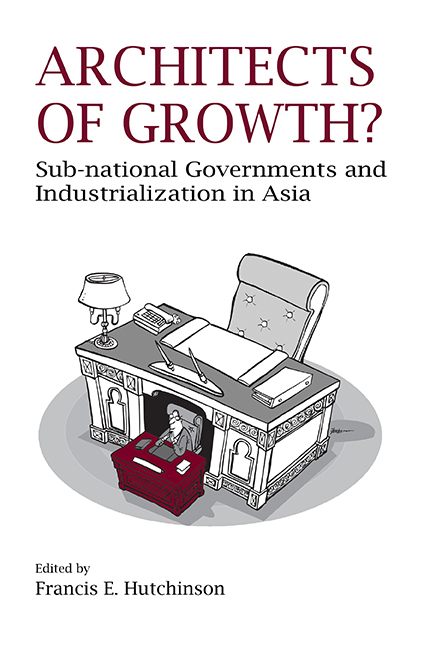Book contents
- Frontmatter
- Contents
- List of Tables
- List of Figures
- Foreword
- Preface and Acknowledgements
- Contributors
- Abbreviations
- I Introduction and Industry Overview
- II Cases from Industrializing Southeast Asia
- 3 A Relational View on Regional Development: The Case of the Electronics Sector in Cebu, Philippines
- 4 One Priority among Many? The State Government and Electronics Sector in Johor, Malaysia
- 5 Why Sub-national Governments in Thailand Are Not Creating Electronics Industry Clusters
- 6 Regional Economic Development and Perspectives for the Electronics Sector in Vietnam: The Case of Da Nang
- III Cases from China and India
- IV Cases from Industrialized Countries
- V Conclusion
- Index
3 - A Relational View on Regional Development: The Case of the Electronics Sector in Cebu, Philippines
from II - Cases from Industrializing Southeast Asia
Published online by Cambridge University Press: 21 October 2015
- Frontmatter
- Contents
- List of Tables
- List of Figures
- Foreword
- Preface and Acknowledgements
- Contributors
- Abbreviations
- I Introduction and Industry Overview
- II Cases from Industrializing Southeast Asia
- 3 A Relational View on Regional Development: The Case of the Electronics Sector in Cebu, Philippines
- 4 One Priority among Many? The State Government and Electronics Sector in Johor, Malaysia
- 5 Why Sub-national Governments in Thailand Are Not Creating Electronics Industry Clusters
- 6 Regional Economic Development and Perspectives for the Electronics Sector in Vietnam: The Case of Da Nang
- III Cases from China and India
- IV Cases from Industrialized Countries
- V Conclusion
- Index
Summary
Introduction
Over the past years, the pattern and nature of interactions between economic agents has been increasingly recognized as an important factor for shaping the geography of regional economic performance. This chapter uses insights from this “relational turn” in economic geography and applies them to analyse regional performance in the Philippines. The chapter draws on empirical evidence from a study of an island province in the Central Visayas area of the country. The province of Cebu provides an interesting research area for an analysis of the influence of politico-economic relational networks on regional economic development, as it has experienced a strong emergence in the global marketplace that was influenced by networks of politico-economic relations. As this study shows, the politico-economic relational constellation of Cebu has a profound impact on the region's economic development trajectory.
Setting the scene: Cebu's shifting position in the global marketplace
The island province of Cebu is centrally located in the Central Visayas region in the heart of the Philippine archipelago. Its largest conurbation, Metro Cebu, is the main urban centre of the southern Philippines. It has emerged as a significant centre of manufacturing and service industries in the last two decades, attracting both foreign and domestic investment and producing for world markets. Outside the Manila area, it is the regional economy that is most associated with globalization and the “global shift” of industries to low-cost locations. As a result, Metro Cebu has emerged as a second node in the Philippines (after Metro Manila) with direct global connections — shipping, aviation, and telecommunications.
Cebu's economic profile is marked by three features that clearly distinguish it from other provinces in the Southern Philippines. The first is its size. As it is host to two-thirds of the Central Visayas’ total population, the regional economy generates approximately 70 per cent of its exports (Figure 3.1). This leading regional position can be related to Cebu's other two characteristics: its economic diversity and strong insertion in the global economy. Cebu's urban economy has a diversified economic base with manufacturing and service industries such as education, tourism and leisure, shipping, and IT-related industries as key economic pillars. With its international sea- and airport, many of these activities are oriented towards the global market.
- Type
- Chapter
- Information
- Architects of Growth?Sub-national Governments and Industrialization in Asia, pp. 59 - 86Publisher: ISEAS–Yusof Ishak InstitutePrint publication year: 2013

